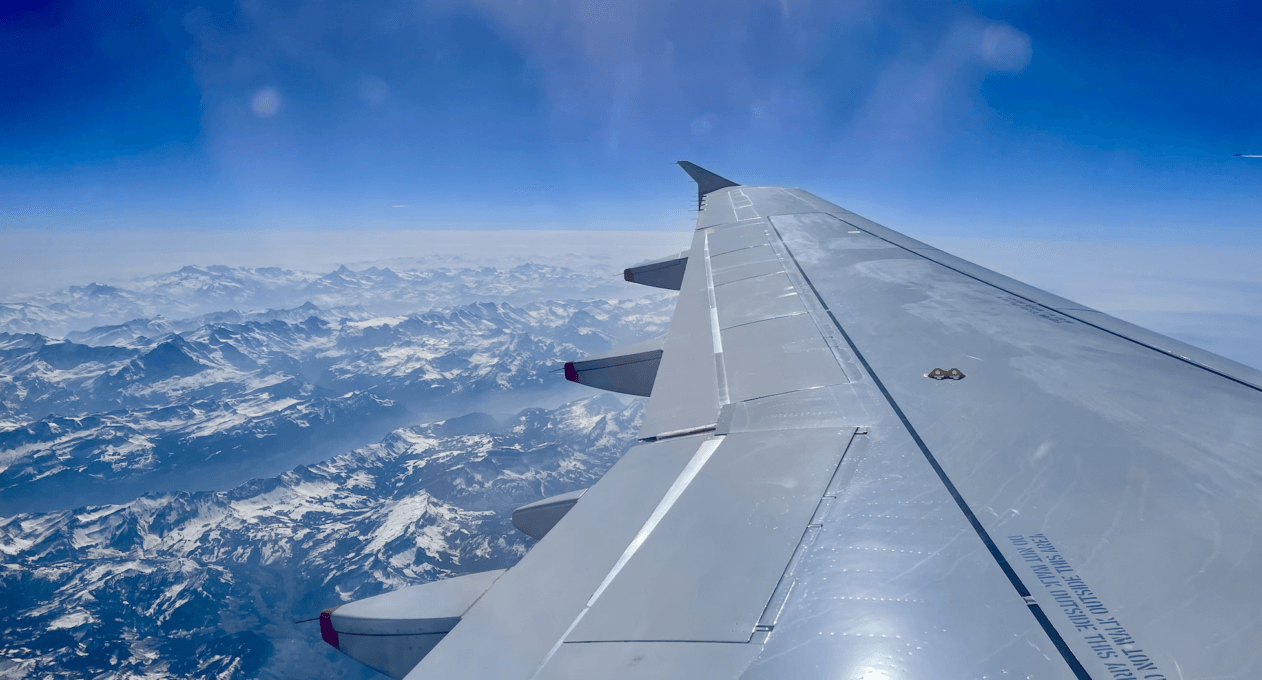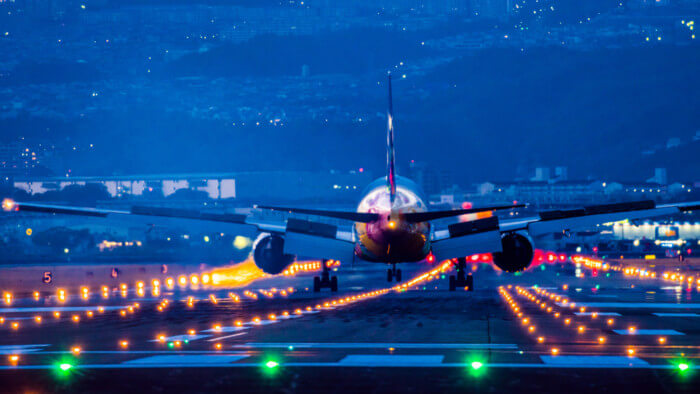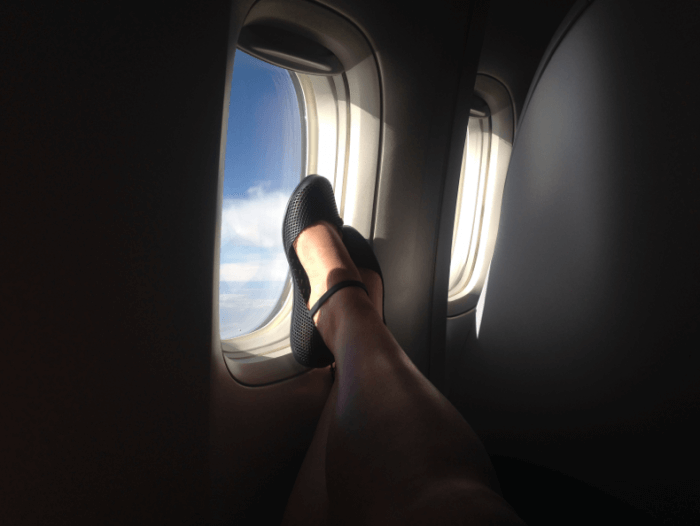Wondering what a ‘domestic flight’ actually is? If so, keep reading.
In this blog post, I’ll outline what the term ‘domestic flight’ means and what domestic travel is, and outline some easy examples.
A Domestic Flight: To take a flight that departs and arrives within the same country.
Domestic Travel: To travel within your home country, and not cross international borders.

For example, if you are American and live within the United States, taking a domestic flight would mean traveling within the USA and not crossing any international border.
So, for example, if you lived in New York City, and took a flight to Las Vegas, this would be classed as a domestic flight.
In the same way, if you took a flight from San Diego, to Seattle, this is also classed as a domestic flight. Because the flight departs and arrives in the same country.
The term ‘domestic flight’ can also apply to other nationalities and countries too, it’s not reserved only for US nationals.
For example, someone in Italy, who wants to explore more of the country, could take a domestic flight from Rome, to Venice. Because they’re staying within the same country, it is classed as a domestic flight.
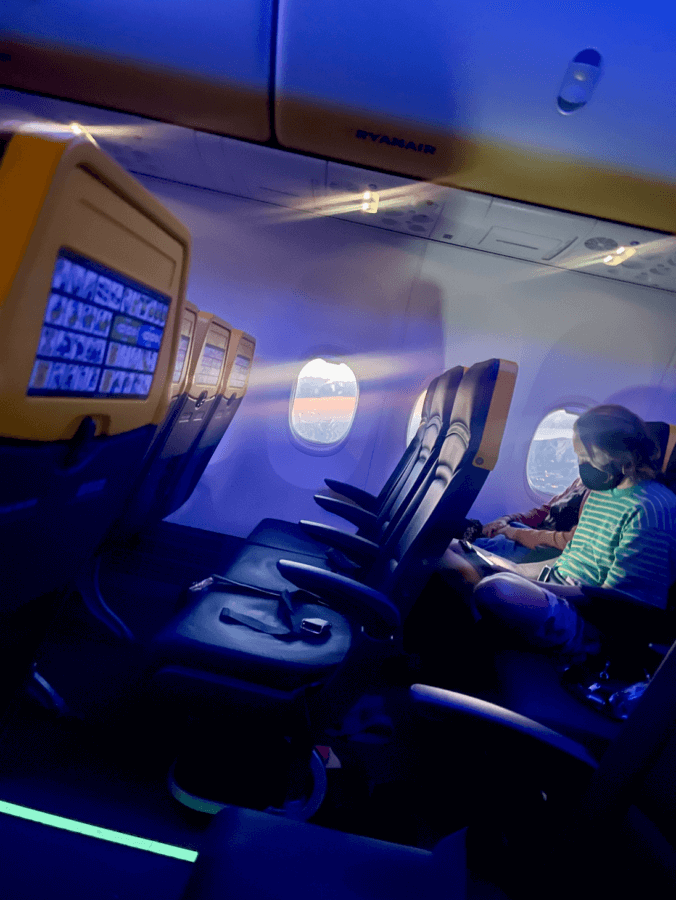
Here are some more examples of domestic flights:
- A flight from New York City to Miami is a domestic flight, because the flight doesn’t leave the USA.
- A flight from Los Angeles to Seattle is a domestic flight, because it doesn’t leave the USA.
- A flight from Vancouver from Toronto is a domestic flight, because the flight doesn’t leave Canada.
- A flight from Boston to Hawaii is a domestic flight, because both places are within the USA.
Here are some example that are NOT domestic travel:
- Taking a flight from New York City to London is NOT a domestic flight, because it involves two different countries.
- Taking various flights around Europe are NOT domestic flights, because they would involve many different European countries.
Read more about flying: How to overcome your fear of flying

What do I need to fly domestic?
You might be wondering ‘what do I need to fly domestic?’ – if so, don’t worry. We got the answers.
The answer does vary from country to country, and also from airline to airline.
In the United States, you need a valid U.S. government-issued photo ID or a passport from your country of origin.
Having these documents will enable you to travel through security, and obviously the ID needs to be in-date, and not expired.
Personally, I would always take a passport, even more domestic travel (just to be safe) but some airlines do accept photo driving licences and other forms of ID for domestic flights.
The best thing to do, is always check with the airline you’re flying with. Because if you turn up to the airport for your flight with the wrong type of ID, you may end up missing your flight.
And no one wants that!
Read more travel inspiration: 15 most walkable cities in the USA
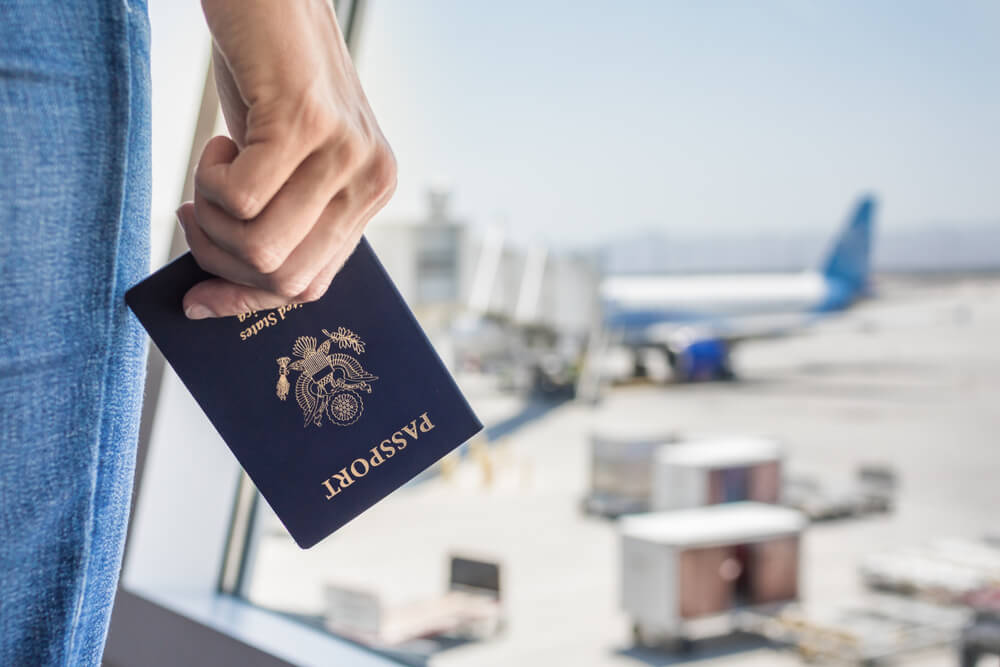
How early should I arrive for domestic flights?
Great question!
The answer to this question, is primarily dependant on whether you’re checking in luggage or not.
If you only have carry-on / cabin bags, then I would recommend arriving 90 minutes before your flight is due to depart.
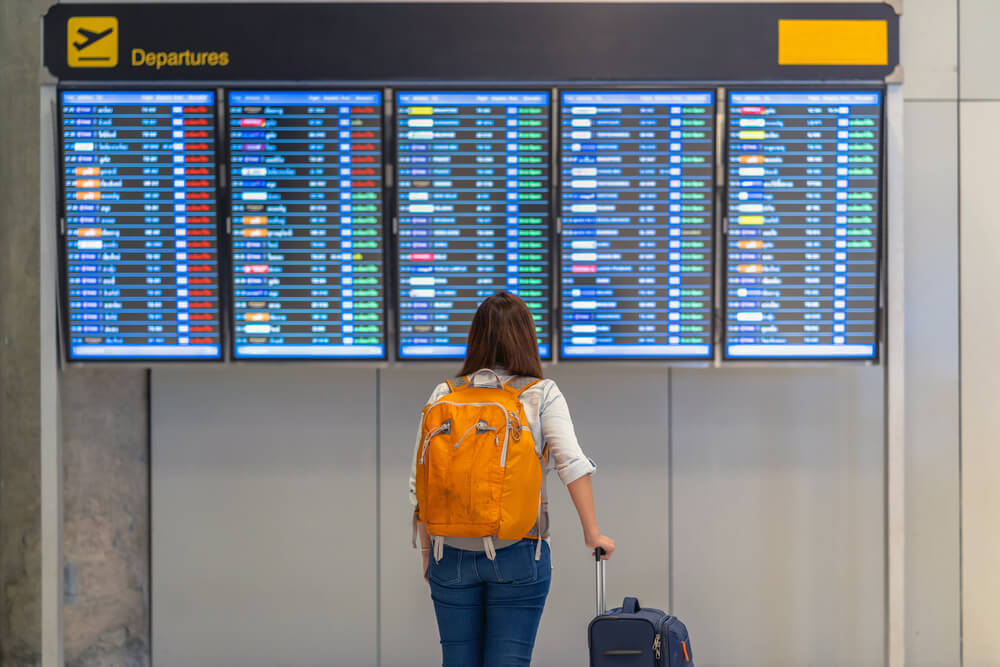
If you’re checking bags for the hold, then you might need to arrive between 2-3 hours before the flight, to allow time for your bags to be checked in.
It’s always best checking with the airline you’re traveling with though – because some airlines differ in their requirements.
Read more about air travel: How early should I arrive at the airport?
Are domestic flights common?
Yes, domestic flights are very common! Especially in large countries like the USA, where cities are spaced quite far apart.
So, for example, a flight that departs from Miami, and lands in Seattle, would be classed as a domestic flight, even though the distance covered if quite large.
Countries like the USA have a large number of domestic flights leaving every day from big and small airports.
Domestic flights tend to be popular because flying is so much quicker than driving, and in large countries, quicker is definitely better!
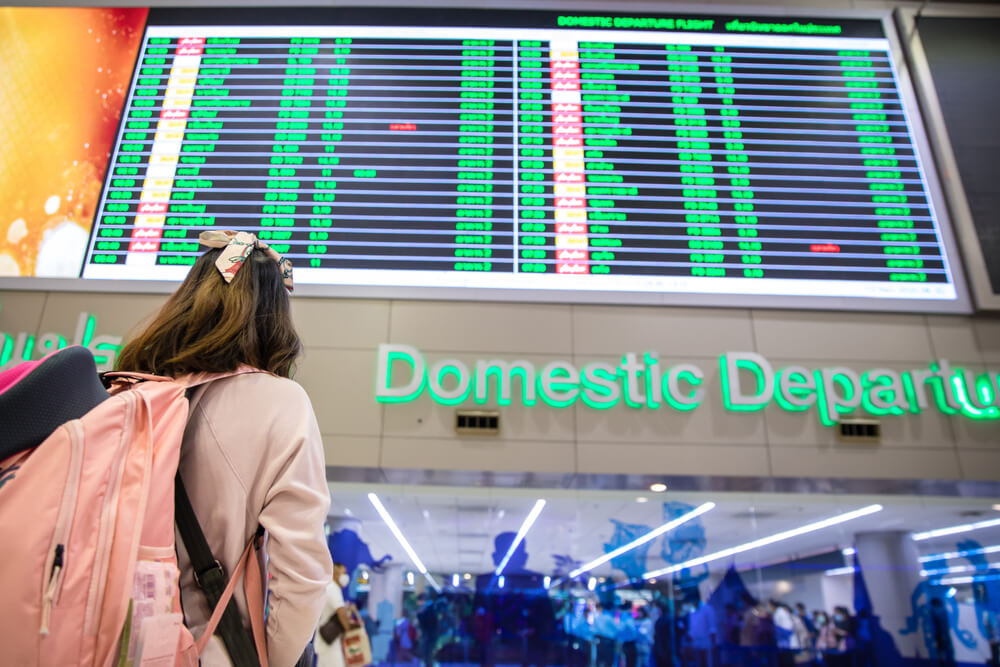
What are the differences between domestic flights and international flights?
There are quite a few differences when it comes to domestic flying vs international flying.
The most notable difference, that probably impacts you the most, is that domestic flights are usually cheaper than international flights (we’ll delve into why later).
Another difference is the level of service. Most international flights will serve meals onboard, whereas most domestic flights won’t.
You may also need a visa to board international flights, whereas you won’t need any extra visa documentation for domestic travel. Just your passport or ID.
And lastly, international flights tend to be on bigger aircrafts than domestic ones. This means that (generally) international flight tend to be a little more comfortable than domestic flights too!
An example of economy class in an International airline (Emirates) can be seen below.
Read more: How to avoid boredom whilst flying long haul
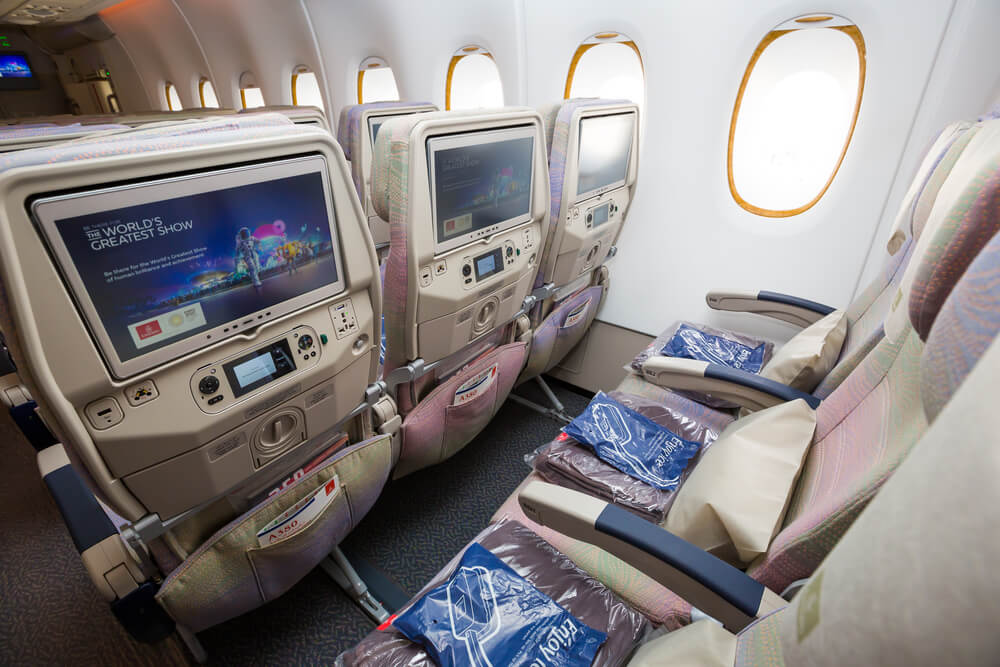
An example of economy class on a domestic airline (Spirit), can be seen below.

Read more flying tips: Is flying first class worth it?
Why are domestic flights cheaper than international flights?
As I mentioned above, domestic flights tend to be cheaper than international flights.
There are a few different reasons for this, which I’ve outlined below!
1. Distance flown
The most significant factor contributing to the cost difference is the distance traveled.
International flights cover much longer distances than domestic ones, which requires more fuel, maintenance, and crew costs.
The longer the flight, the more expensive it becomes to operate the aircraft, resulting in higher ticket prices.
Read more about air travel: Are Priority Pass Lounges usually crowded?
2. Taxes and Fees
International flights typically involve higher taxes, fees, and surcharges.
Governments often impose various taxes and tariffs on international travel, which can significantly increase the overall cost of an international flight.
These fees can include customs fees, security charges, and international departure taxes.
Read more: How to find cheap business class tickets for your next flight
3. Competition and variety of airlines
The airline industry is highly competitive, and the level of competition can vary depending on the route and the number of airlines operating it.
In many domestic markets, multiple airlines compete for passengers, which can lead to lower fares as carriers vie for customers.
In contrast, some international routes may have less competition, allowing airlines to maintain higher prices.
4. International Exchange Rates
Fluctuating exchange rates can impact international flight prices. Airlines often price their international tickets in a specific currency, and currency exchange rate fluctuations can influence the cost of the ticket when converted to other currencies.
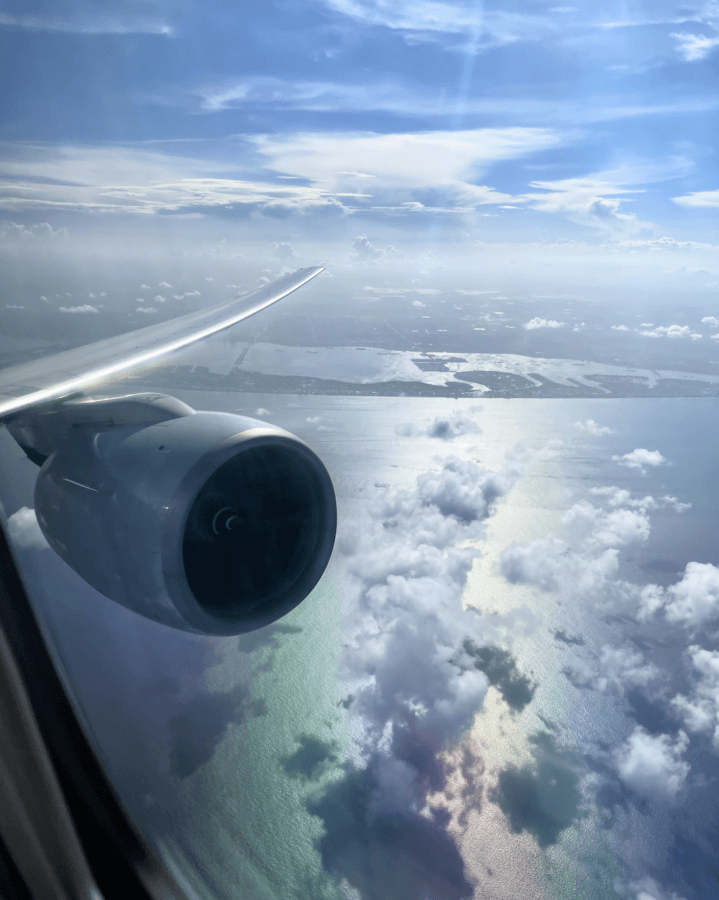
Read more about traveling: Why are flights so expensive right now?
What are the benefits of traveling domestically?
Traveling domestically, or exploring the wonders within one’s own country, is a concept that has gained renewed significance in recent years.
As the world has faced various challenges during 2020, climate change concerns, and economic cost-of-living concerns, more and more people are rediscovering the beauty and meaning of domestic travel.
Quite often, domestic travel can be more kind to the planet, and more kind to our bank balances too.
Saving money, and saving the planet – it’s a pretty great combination.
But what are the other appeals to domestic travel?
Traveling domestically offers an opportunity to learn about local traditions, customs, and history, fostering a deeper appreciation for one’s own roots.
Whether it’s visiting historical landmarks, museums, or participating in local festivals, domestic travel can be a powerful means of cultural enrichment.

Traveling domestically offers an opportunity to rediscover the familiar.
It encourages individuals to explore their own country with fresh eyes, uncovering hidden gems and often overlooked treasures in their own backyard.
Many people tend to prioritize exotic international destinations, believing that adventure and beauty lie far from home.
However, domestic travel can be equally rewarding, if not more so, as it allows travelers to connect with their own culture, history, and heritage.
Domestic travel also plays a crucial role in supporting local economies. When travelers choose to explore their own country, they contribute to the growth of local businesses, hotels, restaurants, and artisans.

Hopefully, you now understand the concept of a domestic flight more!
In conclusion, traveling domestically is not just a convenient alternative to international travel; it is a deeply meaningful and impactful way to explore the world around us.
And a great way to save money too!
It enables us to rediscover our own country, immerse ourselves in our culture, support local economies, reduce our environmental impact, strengthen personal connections, and contribute to the preservation of natural beauty.
As we continue to navigate an ever-changing world, the profound meaning of traveling domestically becomes increasingly apparent, reminding us of the rich tapestry of experiences and opportunities that await right at home.

